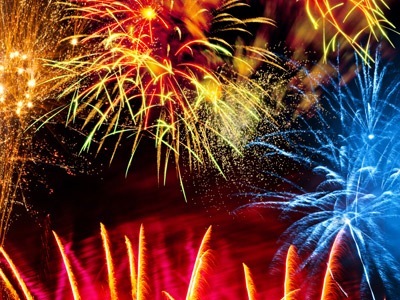It has been said that Hindus have a holiday for every day of the year, but even that may be an understatement! Exactly how many Hindu festivals are celebrated is not known, but one scholar of Hinduism has listed more than a thousand different Hindu festivals.
As in most ancient religions, many of the Hindu holidays are based on the cycle of nature. They mark the change of seasons, celebrate the harvest, and encourage fertility of the land. Others are dedicated to a particular deity, such as Shiva or Ganesh, and some more holidays commemorate events in the lives of Rama or Krishna.
In addition to the major Hindu festivals that are celebrated throughout India, many regional festivals are also held in honour of various deities.
In general, Hindu festivals are intended to purify, avert malicious influences, renew society, bridge over critical moments, and stimulate or resuscitate the vital powers of nature. They include a wide variety of rituals, including worship, prayer, processions, magical acts, music, dancing, lovemaking, eating, drinking and feeding the poor.
Major festivals likely to be observed by most Hindus are:
Holi (also called Holaka or Phagwa). An annual festival celebrated on the day after the full moon in the Hindu month of Phalguna (early March). It celebrates spring, commemorates various events in Hindu mythology and is time of disregarding social norms and indulging in general merrymaking. Holi is probably the least religious of Hindu holidays.
Diwali (from the Sanskrit word Dīpãvali, meaning "row of lights"). A Hindu festival of lights lasting five days. For many Hindus, Diwali is also New Year's Eve. Diwali is held on the final day of the Vikram calendar, a variant Hindu calendar followed by Northern Indians.
Mahashivaratri (also called Shiva Ratri), the Great Festival of Shiva. It is held on the 14th day of the dark half of the lunar month of Phalguna. Mahashivaratri is especially important to Saivites (devotees of Shiva), but it is celebrated by most Hindus.
Some other sacred days are:
Rama Navami - birthday of Lord Rama (April).
Krishna Jayanti - birthday of Lord Krishna (July-August).
Raksabandhana - renewing bonds between brothers and sisters (July-August).
Kumbh Mela - pilgrimage every 12 years to four cities in India (July-August; last one 2003).
Ganesha-Chaturthi (Ganesha Utsava) - festival of Ganesh (August-September).
Dassera - victory of Rama over demon king Ravana (September-October).
Navaratri - festival of Shakti (in Bengal) or Rama's victory over Ravana (South India) (September-October).








